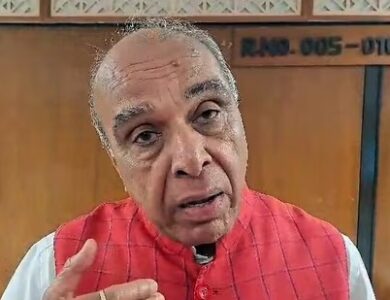
Introduction
A heart-wrenching incident has emerged wherein a student named Anusha who studies in intermediate from Narayana Junior College, Bachupally, Hyderabad, has committed suicide leaving many questions in their minds with sorrow and anger. It has raised huge debates over the excessive academic pressure on children and that educational institutes have to be held responsible in this regard, along with mental health issues among students.
While everyone was still coming to terms with the fact, the news of another suicide in the family sent shockwaves. Anusha’s suicide shook the local community but also brought to the fore that even the education system, in their noble aim, had allowed the dark side to manifest in India, particularly in junior colleges known for competitive environments.
The Incident
Anusha was a bright young student who had enrolled in the second year of intermediate studies at Narayana Junior College. The institution is part of a network of junior colleges reputed for its rigorous curriculum, winningly producing high academic achievers in areas such as engineering and medicine. On that fateful day it was discovered that Anusha was dead in her hostel room. Further checks confirmed she had taken her life.
Initial findings pointed out that pressure from academics was an important factor on the side of Anusha. Her parents and classmates reported that she had been under stress and emotional turmoil most of the times. The spate of intense study schedule and the heavy expectations raised in her had really overwhelmed her. Her sudden death sent shock waves all over the locality, and students, parents, and teachers alike are trying to come to terms with the reality of pressures students face.
The Pressure Cooker of Education
Narayana Junior College, like most institutions in the locale, is famous for being the toughest playfield. Students are constantly pushed to their limits, with relentless study schedules, continuous test preparation, and singular concentration on securing top ranks in entrance exams for prestigious institutions dealing with engineering and medicine. Pressure starts right from the intermediate level where one is often expected to concentrate on academics rather than take care of one’s overall mental and bodily health.
For many students, it is almost too much to bear, especially with such pressure when they are not able to come up to the expectations of the family, teachers, or the institution. In Anusha’s case, what is thought to have caused this tragedy is that she was continuously under pressure to live up to her academic standards with no emotional support. It led her to be completely lost and hopeless and resulted in the most tragic conclusion of ending her life.
Role of Junior Colleges
Narayana Junior College and all its others like it have become the center of controversy in the aftermath of Anusha’s suicide. For long, junior colleges along with the broader Indian system have encouraged academic performance at the cost of other important credentials as a means of success. Students are merely numbers in the race for top ranks. The competition of IIT-JEE and NEET calls for so much pressure that the students are outgrowing a culture where they hardly breathe in but outperform all the peers more than they grow or go through any sort of emotional development.
Many have criticized the way these colleges function saying that the emphasis on academic success results in running out of the mental health of students. There seems to be a lack of proper counseling services as well as emotional support systems as well as a well-balanced approach towards study. Most of these students are left to deal with the stress and anxiety alone without the tools or proper guidance required to cope with the pressure.
Mental Health Crisis Among Students
Anusha’s suicide does not happen in isolation. In the recent past, many cases have been reported of students taking their own lives because they could not withstand the pressure of studies. India is beset with a growing mental health crisis among students, and many youngsters feel the brunt of stress and pressure put upon them by their studies. This is especially so, because the stigma that festers mental health issues causes most of the affected students not to seek any professional help, and many institutes of learning, with a lack of adequate mental health resources, only aggravate the problem.
For instance, in the case of Narayana Junior College, there have been appeals to the institute to take more responsibility for the betterment of the students. Many people now believe that colleges have made excellence in academic performances a top priority and have forgotten that commendable concern about sending out students with healthy mental growth. This includes counseling and stress management workshops and so on so that there will be more wholeness in the process toward education suited for the growth of students.
The Aftermath and Call for Action
Anusha’s death has created a platform for higher debate over the state of education in India, especially regarding the role of juniors colleges in the widespread problems of mental health issues. Parents, teachers, and students are rallying for reforms to how the system operates, and things need to change as it is very competitive with respect to modern education.
There has been an increasing call for reforms in the education system to reduce the burden from the student so that the heads and hearts can breathe and reflect. Many think it’s high time the government and school bodies acted rapidly to address the mental health crisis in students, which would be implemented through proper counseling in each school and policies making a healthier balance of study and life.
Conclusion
The tragic suicide of Anusha in Narayana Junior College is a grim reminder of the colossal pressure associated with the existing education system. A story that calls for urgency change the mindset of educational institutions toward students’ welfare and mental health brings a lump to the throat in view of this tragic incident. A topper student can never become more important than his life. A necessary dialogue has been opened because of this tragedy: that an education system must be as compassionate and supportive as it is prioritizing the desire of students to succeed, rather than rankings or scores.




